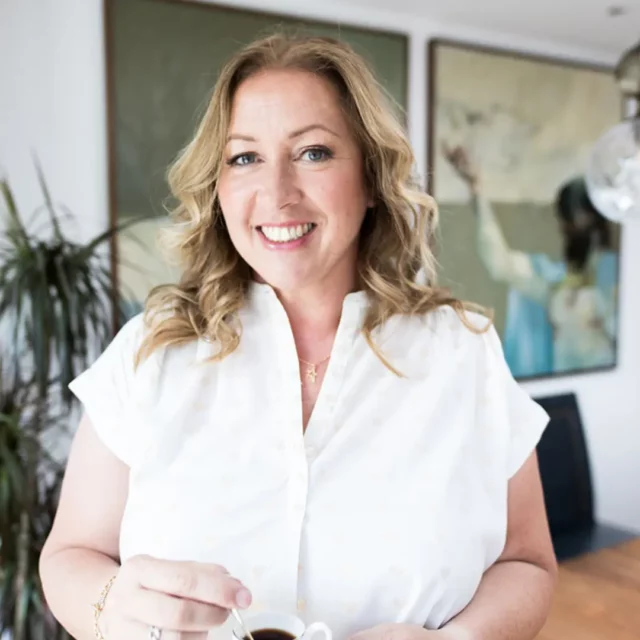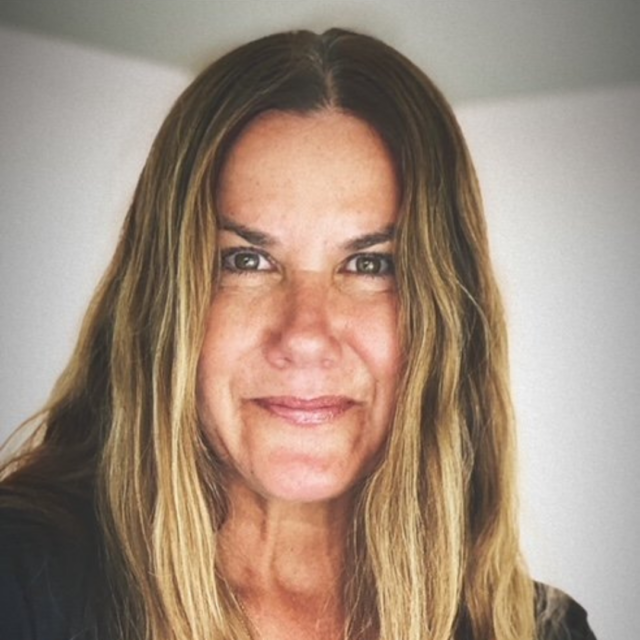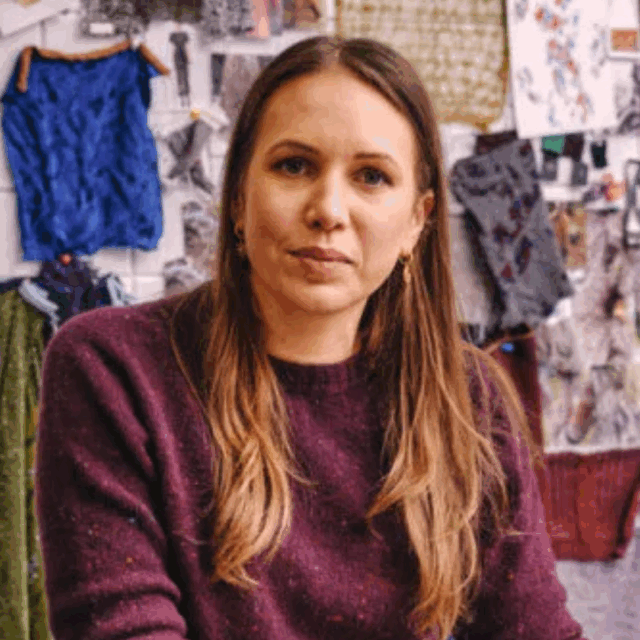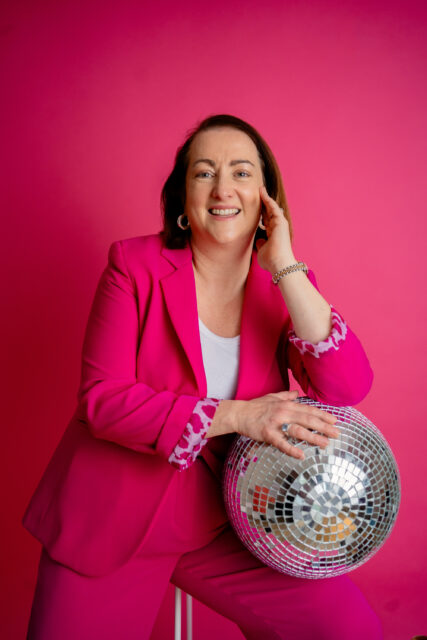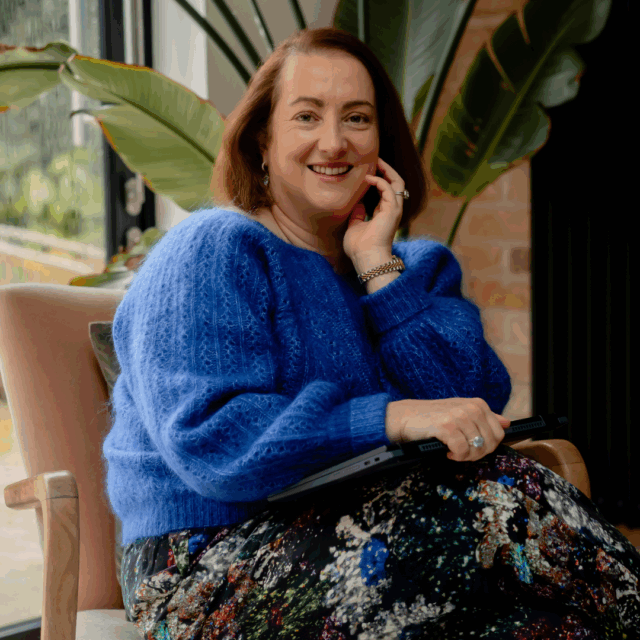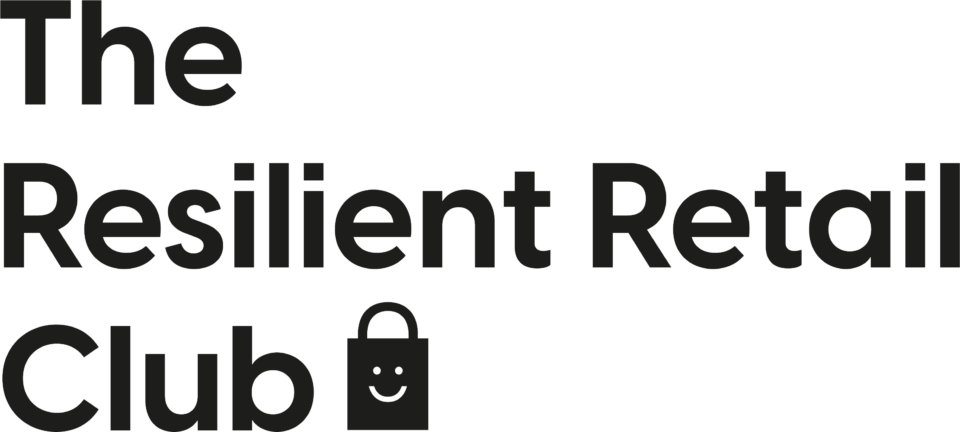Four Golden Rules to Creating a Business You Love
Catherine Erdly: In today’s episode, we’re going to take a trip back in time.
Hi everyone. I’m Catherine Erdly. You’re listening to the resilient retail game plan podcast. I’m your host, as well as the founder of the resilient retail club. com, which is my membership group and my mastermind for product businesses.
And the mastermind is open again. We have our March cohort is kicking off very shortly. So do go check out resilient retail club. com and check out the mastermind. If you want to know more, you can book in a discovery call right from the website.
So in today’s episode, we are going back in time about three weeks to the retail ROAR summit.
Many of you came along and joined us. And for those of you that didn’t, the retail ROAR summit was a two day online event that I put together over a number of months. It was a real labor of love. Something that I worked on from October of 2023, and it went live at the end of February. It was an absolutely phenomenal experience.
I made myself a list of the dream speakers that I wanted to have come along and speak, and almost all of them said, yes. So we had the founders of Lucy and Yak of Scamp and Dude, of Eleanor Bomer, and so many more snag tights, the label lady, we had people who had grown their businesses from their parents basements to multi million pound and beyond. Their spare rooms, local craft fairs, and now two of the speakers, snag tights and Lucy and yak, they were actually on the UK’s list of fastest growing companies last year, which is amazing. And it was just such a great experience. 2000 people signed up for retail ROAR, which was absolutely phenomenal. And we just had the best reaction. I loved hearing how people found it so motivating.
If you want to catch up on any of the sessions that you missed, they are now all available inside the Resilient Retail Club membership portal. So you can always sign up for that again, head over to ResilientRetailClub.com and have a look at the membership page for more information.
Catherine Erdly: But for today’s episode, I wanted to share with you my opening talk for the summit. And part of the reasons that I wanted to share it with you was because I worked really hard on this talk. I worked with an amazing public speaking consultant.
Her name is Charlotte Lewis. You can Google her, check her out. She’s on LinkedIn and she was phenomenal helping me really shape my ideas. We went back and forth over WhatsApp, voice notes, sessions, going through, scripting it out. Charlotte is a former theater director. So she’s very conscious of pacing and how to keep people’s interest throughout.
And I really, really enjoyed the process of putting this talk together, but also importantly, I feel like it’s a really important message for everyone to hear in terms of how to create a business that doesn’t just look good, but one that feels good too. So today’s podcast episode, we’re going to be going back in time and in listening to my opening talk from the Retail ROAR Summit.
Welcome to the Resilient Retail Game Plan, a podcast for anyone wanting to start, grow or scale a profitable creative product business with me, Catherine Erdly. The Resilient Retail Game Plan is a podcast dedicated to one thing, breaking down the concepts and tools that I’ve gathered from 20 years in the retail industry and showing you how you can use them in your business.
This is the real nuts and bolts of running a successful product business, broken down in an easy, accessible way. This is not a podcast about learning how to make your business look good. It’s the tools and techniques that will make you and your business feel good.
Confidently plan, launch and manage your products and feel in control of your sales numbers and cashflow to help you build a resilient retail business.
Creating a business that not only looks good but feels good too.
Catherine Erdly: Do you want your business to be a roaring success? Maybe you want to be like the amazing founders that we’ve got in the lineup for this summit and build a business that doesn’t just look good, but one that feels good too. If so, then I’m going to be sharing with you four golden rules to help you get there.
I’m also going to be sharing with you some of the behaviors and actions that I’ve seen small business owners take That keep them small and hold them back. So if you’re ready to roar, then let’s get started. When I think about why I created this summit, then it has to be because of one word that I think sums up the experience of small business owners over the past few years.
And that’s a roller coaster. Let’s face it, there have been thrilling climbs, terrifying lows, Unexpected twists and turns and I wanted this summit to be something that could really bring people together and help them recover from the experience of being on that roller coaster. There is so much out there that is impacting small business owners.
Just a quick Google of recent newspaper headlines will show everything from COVID to Brexit, the cost of living crisis, spiraling inflation, interest rates. It is no surprise that small business owners are feeling overwhelmed and frankly, exhausted. My name’s Catherine Erdly. This is me with my book, Tame Your Tiger, How to Stop Your Product Business Eating You Alive.
It was published a year ago today, and this year is my 24th year in the retail industry. For the past six years, I have worked with hundreds of independent retailers and brands to help them grow their sales, manage their stock and create a business that feels good. I’m the founder of the Resilient Retail Club, which is my membership group and mastermind for product businesses.
And before that I spent 18 years in big retailers. So I have seen it all. From the economic crash of 2008 and so many more difficult times, but this time felt a bit different. This time felt even more exhausting for small business owners that I was talking to, which is why I wanted to pull this summit together.
People described it to me as being like standing on one side of the Grand Canyon and being able to see the other, but no idea how to get across. I’ve been talking to ambitious, focused business owners who have big plans, big dreams for their businesses, but just couldn’t see how to bridge the gap or if they could see a way across, frankly, it just felt completely terrifying.
And so what I wanted with this summit is to give you that inspiration and those ideas that will help you see that getting across that grand Canyon, it doesn’t have to be so terrifying. In fact, it could even be. Dare I say it thrilling, fun, and a little bit easier. I wanted the summit to be an opportunity for you to have new ideas, maybe even flip the switch in terms of what you’re telling yourself about your business and give you that opportunity to take a little bit of time out, hear some inspiring stories, get some really great information from amazing experts and make a difference in your business.
We’re going to be hearing from people who have made it across the Grand Canyon and now enjoying the view. We’re going to be hearing from people who’ve climbed to great heights in their business.
They’re people just like you who started their businesses from their local market stall, their kitchen table, or just with a really big dream that they were determined to make a reality. And they’ve gone on to do amazing things such as huge national collaborations, getting investment from Lord Sugar and opening stores.
We’re going to be hearing about how they’ve won awards, hit that million pound mark and beyond. The global brands open more stores collaborated with some huge names and two of them have even made it onto the Sunday times list of the top 100 fastest growth UK companies. So there’s going to be so much inspiration to share.
Four habits that are keeping you from the business you desire
Catherine Erdly: But before we dive into these amazing stories and hear from these incredible founders, I’m going to ask you if any of these behaviors that keep us small or habits that harm us and our businesses, if any of these sound familiar to you, and if that feels a little bit overwhelming, then I just like to remind you that at the end, I’m going to be sharing with you my four golden to help you move your business forward.
So Don’t panic. Some of the things that I’m going to be sharing, they’re habits that made sense during those tough times. But as these tough times have just kept going, as we’ve gone from what, when I was doing my research for my Forbes. com trend piece about the retail industry, I saw people describe as a perma crisis.
So as we’ve gone into this perma crisis, some of these things have become habits and that is what’s keeping so many small business owners that I’ve spoken to held back from creating that business that doesn’t just look good, but one that really feels good too. So what’s holding us back from having a feel good business?
I’m going to talk you through four habits of four behaviors.
Habit #1: You’re Always Talking About the Weather (you blame external factors for what was happening internally)
Catherine Erdly: And the first one that I’m going to talk about is always talking about the weather. So what does that mean? Well, as I said, I spent 18 years in big multi million, sometimes multi billion pound retailers. And every single Monday without fail, we would start the week with a trading meeting, all of the product teams and the executive team get together in a room and we would go through in great detail what had happened the previous week.
There was a big rule. You could not talk about the weather. In other words, you can never blame the external factors for what was happening. So if it had been the most beautiful sunny day, then all the most beautiful sunny week, then you weren’t allowed to say, well, You know, our web sales were down last week because everyone was outside enjoying a picnic.
And the purpose of that was to really make you focus not on what you could talk about, the weather, because let’s face it, there’s always weather to talk about, but to make you really focus on the internal factors, the things that you could control. And it was really harsh. Sometimes there was a snowstorm that would close half the stores and we still wouldn’t, weren’t allowed to talk about the weather.
Now that is a little bit extreme, but it’s really all about not spending too much time focusing on those external factors. Now what external factors you might ask? Well, here’s the list again. All of those things that you will be hearing about all the time, the kind of things that mean people will say to you, are you really running a business or expanding or planning to grow in this economy?
They will say things to you like, nobody’s buying anymore. No one is buying again. Who would pay that price for that product in this economy? It’s all of those things. And all of that, that thought process that keeps business owners stuck. It puts you into what Stephen R. Covey in his fabulous book, The Seven Habits of Highly Effective People, talks about as the circle of concern.
So your circle of concern is a broad, broad area of everything that may be worrying you as a business owner. But here’s the thing. You have got no control over the outcome of these things. So. All that time spent in your circle of concern, it can be really damaging. So why is it damaging to your brand?
Well, it means that you lose focus. It is very hard for you to be focused as a business owner. If you’re spending all of your time thinking about all of these different factors over which you have absolutely no control. It’s also really, really stressful. It is one of the main reasons that people feel overwhelmed and lose motivation in their businesses is when they’re constantly focusing on things that they simply can’t control.
Yes. It’s good to be aware of them. I’m not saying that we have to be a Pollyanna and just pretend that absolutely everything is fine and we don’t have to worry about a thing, but too much time spent in your circle of concern can be really damaging to you and the actions that you can take to move your business forward.
Habit #2: Believing success is linear and that there is a finish line.
Catherine Erdly: The second behavior. that is keeping you small and holding you back from creating a business that doesn’t just look good, but one that feels good too, is that believing is success is linear and that there is a finish line. So many times people will say to me, I just need to get more sales. That’s the key thing.
I just have to get more sales and then everything will be fine. Well, I’m here to tell you that is not the case. Retail is like a train, it is constantly moving forward and it requires forward momentum. And this is both exciting but also super challenging. Now, unlike a train, however, retail is not super linear.
There are cycles in your year. There’ll be cycles in your business too. But if you believe that success is linear and that there should only be one way and that is up at all times in every month and every year, even than any setback that you have. For your sales, whether it’s a quieter time of the year or a quieter year in your business, it can feel absolutely devastating instead of feeling as part of the natural evolution.
On the flip side, when things are going well, then it can mean that you may be tempted to rest on your laurels because then if sales are going well, you may think, Right. That’s it. I’ve cracked it. I don’t need to be thinking about product development or what happens next or how I’m moving the business forward because I’ve done it.
And that is the problem with thinking about success as being linear. You will hear a phrase, I love this phrase, new level, new devil. It’s something that I talk about with several of the founders during our conversations. And that’s to say that. As your business evolves, it will change. You will grow, but it won’t be linear.
There will be challenges along the way. So getting out of that mindset about expecting it to be just one way for growth can really help you as a business owner and help you take advantage of the resilience that so many business owners have, but don’t necessarily tap into. And here’s just a small note as well about pictures like this.
The number of times I talk to people who’ll say to me, Why don’t I have a pile of Things ready to go out in the post. Why don’t I have a cube of people around the block coming to my store or those long tail receipts you see people printing out Or they’ll say i’m doing fine on social media except when I see so and so post these pictures of their piles Of mailing bags or that big pan around the giant warehouse and I just feel so deflated So many times people see these kind of pictures, this kind of virality as being the pinnacle or the finish line that they’re trying to get to.
But I’m here to tell you again, the number one social media is not reality. I know we all know this, but sometimes we just need to be reminded. And secondly, that this is not actually the finish line. Even if you get to this point where you have got these piles of postage, bags and packages. There is so much work to be done.
And for every picture that you see with somebody standing, smiling next to a pile of bags because they’ve gone viral or they’ve had this huge surge in orders. I can promise you, there are a lot of people who then go have a little cry in the bathroom afterwards because they’re feeling so overwhelmed. We see these external factors as the idea of success.
But in reality, there is so much more behind building a business that doesn’t just look good. One that feels good too. And that’s why I’m so passionate about this subject. So many times one of the great privileges of the work that I get to do is I get to see behind the scenes. I get to see the real numbers, the real profitability, the real bottom line of lots and lots of different businesses over the years.
And I can tell you, there are businesses that you wouldn’t think. When you seal them externally, they, you wouldn’t necessarily know that they’re actually doing so well and have founders who are really engaged and loving the businesses that they’ve created. And on the flip side, you’ll have people who from the external perspective look like they’ve hit these marks of success, but don’t necessarily feel good. In fact, they’re feeling really overwhelmed.
Habit #3: You are being distracted by somebody else’s idea of success.
Catherine Erdly: Which brings me on to the third habit, which is being distracted by somebody else’s idea of success. And we’re surrounded by constant messages as small business owners, almost Immediately that I decided to start a business, I was bombarded by all of these messages about build your six figure business, how to get to seven figures, all of these things that promise blueprints or silver bullets, all these plans to help you get there.
So you’re constantly being told what success looks like. If you go and watch dragon den, then you’ll see the dragons have a really clear idea of what success looks like in a business. And so it can be tempting to feel like that’s what we need to do with our businesses. But I have to say, when I work with founders who’ve had sales growth, but are feeling not so happy with the way things are turning out, Usually what it all boils down to and we work together and we unpick what’s going on.
It’s usually because they’ve actually ended up building somebody else’s idea of success. And if we chase somebody else’s idea of success, it can feel like a lot, like expending a huge amount of energy running after something that we don’t necessarily even want and wouldn’t necessarily know what to do with if we actually managed to catch it.
So it’s really important for us as founders to be aware of this. The other thing that can happen when you chase somebody else’s idea of success is that it can block you from celebrating when you do have successes in your own business that are aligned with your vision. But small business owners are absolutely terrible at celebrating their successes.
And it’s even worse when you’re distracted because you think, well, that was really good. But so and so’s got those piles of shipping bags or so and so just posted how they sold out of their new launch. So and so posted how they have a queue around the block before they open every morning. And he can feel really uncomfortable and stop us recognizing what’s working for us, which holds us back because.
Instead of celebrating, we are in fact, just giving ourselves a really hard time. And the worst thing that can happen with this, when you focus on somebody else’s idea of success is that you can end up creating a business that actually isn’t what you want in the first place at all. So many people start their business because they want to do something different.
They want to connect with their creativity. They want to create a flexible lifestyle that works for them and they want to, or they want to just build something that is really doing things in a better way. And if you chase after somebody else’s vision of success, then you can risk building a business that just doesn’t bring you that much joy.
So even though we’re going to be hearing from some amazing founders, Each one of them found success in their own way. And that’s what I really would encourage you to do, to think about what success means to you and what your version is instead of chasing an external idea of what success means.
Habit #4: You are eating too many donuts (spending lots of time and money on things that don’t make a difference while neglecting those that do).
Catherine Erdly: And the fourth habit or fourth behavior that I see from small business owners that keeps us back, holds us back and stops us roaring is eating too many donuts.
Now, what does this mean? This means spending lots of time and money on things that don’t make a difference while neglecting those that do. Let’s think about donuts for a moment. They are beautiful. They look great. They smell great. They glisten. They’re beautiful colors. They look so tempting. And to be honest, the first bite’s pretty amazing too, but too many of them can get overwhelming.
So what are some of the donuts that you might be hankering after in your business? For example, chasing going viral. But never actually emailing the customers or talking to the customers that you’ve already got, or even aiming to grow your audience online, but not actually talking to the people who were already there.
Aiming to grow your sales, wanting to grow at all costs, but not actually checking That it’s profitable, which means that you can grow your sales, which then grows your costs, grows the complexity of your business, but actually not even improving your bottom line. Something that I like to call sophisticated procrastination.
So sophisticated procrastination is taking on a big project like redoing your website or redoing your branding. That looks like you’re making loads of progress, but actually if it doesn’t, it’s not. If you’re really honest with yourself, is it going to move the needle when it comes to sales? Because if the problem that you’ve got with your first website is you’re just not getting enough traffic to it, is it necessarily going to fix it if you give it a makeover, for example?
Now there’s not to say there’s lots of things that you can’t improve on your website and you should always be looking to improve it, but just ask yourself, is this project really something that I’m doing because It sounds fun and exciting and I can get my teeth into it and it’s going to look really good.
Or do I honestly believe is going to move the needle when it comes to sales? And this also goes for shiny new tactics. So for example, if you’re hearing everyone talk about, I don’t know, launching a sub stack and you think, right, that’s it. I’m going to do it. This is, this is it. I’m going to, Tune into that.
I’m going to go for it. I’m going to create my own sub stack. Just ask yourself, is that actually where your customers are? Do you really believe that you’re going to be talking to more people and moving the needle on yourselves? If you jump in with the shiny new tactic, as we know too many donuts, they’re great to start off with, but too many of them can feel overwhelming.
You get a sugar rush and it can lead to long term problems like tooth decay. So just think about yourself. Think about it. When you think about your business, where are you spending your energy and are you eating the doughnuts?
So here are some of the behaviors then that can keep us small, keep us, hold us back from roaring. Things like focusing too much on those external factors, that you’re spending too much time in our circle of concern. Things like chasing a fixed idea of success that maybe doesn’t even belong to us anyway. And eating too many donuts, getting distracted by those shiny things, doing the things that look good, but maybe aren’t good for us and our business in the long term.
Four Golden Rules that will Help you Build a Business You Love
Catherine Erdly: So how do we change this all then? How do we roar? Remember those four golden rules that I said I was going to talk you through? Well, let’s go.
Golden Rule #1: Radical Responsibility: taking full responsibility and full ownership for everything that happens in your business.
Catherine Erdly: First up radical responsibility. This means taking full responsibility and full ownership for everything that happens in your business. And that can be the good things and the bad.
So instead of blaming the weather, think about taking responsibility and I want you to really listen when you’re listening to the founders who are speaking in the summit. And notice how they don’t make excuses for what happens in their business. They talk about challenges. They talk about challenging times, but they don’t ever make excuses.
They look at problems, not as something that they can’t control, but they always delve in, see where they can take responsibility and what changes they can make. You’re also going to hear a lot of determination from our founders today. Joe Touchner Sharpe, who founded Scamp and Dude, she talks about going to see suppliers, going to see Liberty the year after she had brain surgery, where she still had a shaved head and a visible scar because she was so determined to bring her vision to life.
And that’s what you’re going to hear so much of from these founders today is that Responsibility and determination. This puts you squarely into the circle of control. So circle of concern, everything that you might be worried about, but you don’t have any control over the circle of influence, which are things that you may have some control over, but not that much.
But then that circle of control, this is the driving seat of your business and think about ask yourself. Where is your energy being spent? Are you spending all of your time and your mental energy in that circle of concern or are you in the circle of control?
Golden Rule #2: celebrating that there is only one you. Keep your eyes on your own paper.
Catherine Erdly: The second golden rule then for having a business that roars is accepting that there is an embracing, celebrating that there is only one you don’t be this guy.
So many people, they neglect their own business because they’re distracted by other people’s. Comparisonitis is rife. Almost every single business owner that I talk to has comparisonitis, and the irony is half of them are the businesses that other businesses are looking up to, but then they’re looking up at other businesses and comparing themselves to those.
The key here is to focus on the fact that there will be other people doing things, but don’t let that distract you. Keep your eyes on your own paper. And you’ll hear this story again and again with the product business founders that we’re going to be hearing from during the summit. You have people like Bree Reid, who went out there to completely change the way that tights were being made.
She didn’t try and fit in. She enjoyed standing out. Authenticity. This is something that comes up a lot. Lucy Greenwood, the founder of Lucy and Yak. When I asked her what was behind her success with growing the business, again, one of the businesses that ended up on the Sunday Times list of top 100 fastest growth UK companies, she said, One of the reasons that she gave was authenticity.
She believes that customers wanted or responded to them because they were authentic. So you can’t be authentic unless you embrace yourself, your unique self. So that is something that I want you to listen for as we go through the summit is the ways that these founders really embraced their own unique business and their own unique vision for their business as well.
Golden Rule #3: Always Eat Your Vegetables: Focus on the things that are not super sexy or exciting from an external perspective but will 100% help you grow your business.
Catherine Erdly: Always eat your vegetables. Rule number three. So what does that mean? Well, we talked about the donuts. You know what those are? Those shiny things that look good, smell great, but don’t necessarily have the best impact on our business. The opposite of those are the vegetables. They are the kinds of things that they’re not super sexy and exciting from the external perspective.
They’re not very Instagrammable, but they 100 percent help you with building that business that feels really good. So instead of getting distracted by shiny things, make sure that you check your profit margins. You know how much money you’re making. Every time you make a sale, know your numbers, know how much stock you’ve got in your business.
Know how much stock you should have in your business. Have a plan for what you’re going to do. If you’ve got too much stock, talk to your customers. Again, going back to Bree Reed, she spent two years talking to customers before she launched SnagTite. Work on your product, on your products, Yao Achere and Amma Ammo Ajayi.
They are the founders of Ava Estelle skincare and plant made hair care. Their products make huge differences to their customer lives. And that is because of the research and the time that they put in to make them the best that they could be. As a result, have some phenomenal before and after pictures, just.
You can go check out their social media and see them. So working on your products is absolutely critical. It’s one of those fundamental things that you almost can’t do enough of and be really clear on your vision. Listen to the founders talk about how they had a vision. Now, most of them didn’t have a vision when they first started.
Lots of them will happily admit that they didn’t ever envisage getting to this point when they got going. But over time, part of the way that they grew as a leader was to hone their vision and to really get clear on what they wanted for their business. And those are all of the vegetables.
So all of these people that have done these incredible things, they have done them through focusing on some of these really super basic, almost like legwork, the less than glamorous stuff, but the absolutely 100 percent makes a difference.
Golden Rule #4: Resilience on Repeat
Catherine Erdly: And the final one, possibly my favorite resilience on repeat. Now I am super passionate about the concept of resilience in business. After all, I named my whole business, the resilient retail club. And so when it comes to growing, instead of letting obstacles stop you, none of the founders that we’re going to hear from are going to talk about how they had an absolutely clear path of nothing going on.
They’re all going to be talking about the challenges along the way. But just remember, One of my favorite sayings, no grit, no pearl. In other words, you can’t create something amazing without some of those obstacles along the way.
So a business that roars, then we want to talking about what makes a business that ROAR.
So business that ROAR is one that takes responsibility, owns their authentic self, eats their vegetables and has resilience on repeat. And if you’re somebody who’s listening to this thinking yes, okay, Catherine, I’ve got it I want to always eat my vegetables, but I don’t know how to do it I am going to be launching something this year that will help you if you want to eat your vegetables But you don’t have the time Then if you want to head over follow this qr code, there’s going to be a link You can sign up to register your interest or when I do come around to launching it So go grab that link, sign up today, and then you will be able to hear all about, you’ll be the first to know about my new service.
So there we go. ROAR, four golden rules, take radical responsibility, accept there’s only one you, in fact, celebrate that there’s only one you. Always eat your vegetables and have resilience on repeat. We have got the most amazing lineup ready to go for this summit. I cannot wait for you to hear the stories from these founders.
They are absolutely extraordinary. And I know they’re going to inspire you in your own business and show you that way across the grand Canyon in the helicopter and not on the tightrope. We also have the most incredible range of experts who are going to be sharing that really. Deep and insightful knowledge about what’s ahead for 2024, give you some great tactics, ideas, inspiration, and tips to help you in your business in 2024.
So without further ado, let’s get ready to roar. Thank you so much for tuning in. I hope you enjoyed the talk as much as I enjoyed putting it together. And I hope you enjoyed it. Again, if you heard it the first time round as well, you’ll notice during the talk, I mentioned a sign up for a service that I’m launching later this year to help you eat your vegetables.
And I’m going to put that link below in the show notes. And if you’re interested to be the first to know about when it launches and get some extra goodies as well for being on the waiting list, completely free, no obligation, then check it out. Follow the link and sign up. Thank you so much for listening and I’ll see you next week.

